Life can be stressful. With everyday anxiety, it can be hard to unwind at the end of a long day. While there are millions of ways to calm one’s nerves, one natural remedy could actually involve something as simple as tea. Drinking a cup of herbal tea can have a soothing effect on the mind and body, which is exactly why we have compiled a list of the best teas for stress. These teas are known for their calming properties and help to promote relaxation. The ritual of preparing and sipping on a warm cup of tea can also provide a moment of mindfulness, allowing one to slow down and focus on the present moment. So, the next time you find yourself overwhelmed, consider reaching for a cup of tea as a natural remedy to help ease your stress.
Of course, there are other remedies to help you on high-anxiety days. A recent poll showed that most Americans turn to TV to decompress more than any other relaxation method. The survey reveals that 55 percent watch TV as a self-soothing technique for relieving anxiety or stress. That’s more than the number of respondents who relax by taking a bath (42%) or doing yoga (33%). Over half the poll (56%) seek out “comfort” TV shows or movies they watch regularly. Respondents turn to those comfort shows most when feeling stressed (22%), bored (22%), or anxious (20%). On average, they’ve watched their comfort TV shows or movies about 18 different times. Respondents add they maximize comfort in front of the TV by messaging their friends and family on another screen (43%), wearing comfy clothing (40%), and watching from their favorite spot on the couch (40%). In fact, those who watch from their favorite spot are most likely to consider themselves “relaxed” (34%) after watching their comfort show.
Cuddling up with your pet also has stress-relieving benefits. A recent study from Washington State University has found objective, physiological evidence that just 10 minutes spent petting a cat or dog will lower stress levels. Numerous colleges and universities across the United States have already implemented “Pet Your Stress Away” programs for students feeling stressed out about finals, papers, or anything else going on at school. Stressed students can spend some time with a dog or cat and hopefully put themselves in a more relaxed mood. However, the study’s authors say that these types of programs do much more than just improve students’ moods; spending time with a furry friend incites a tangible, physiological response that lowers stress levels. Just imagine the combination of your favorite show streaming, one hand petting a fluffy dog and the other nursing a cup of herbal tea. You would be unstoppable.
Regardless of how you decompress, you may want to add sipping on tea to your nightly unwind. As always, we at StudyFinds have researched across multiple sources to bring you today’s list of the top five best teas for stress! These herbal options were easily the most popular choices among experts. Don’t agree with our list? No worries; we would love to hear from you in the comments down below!
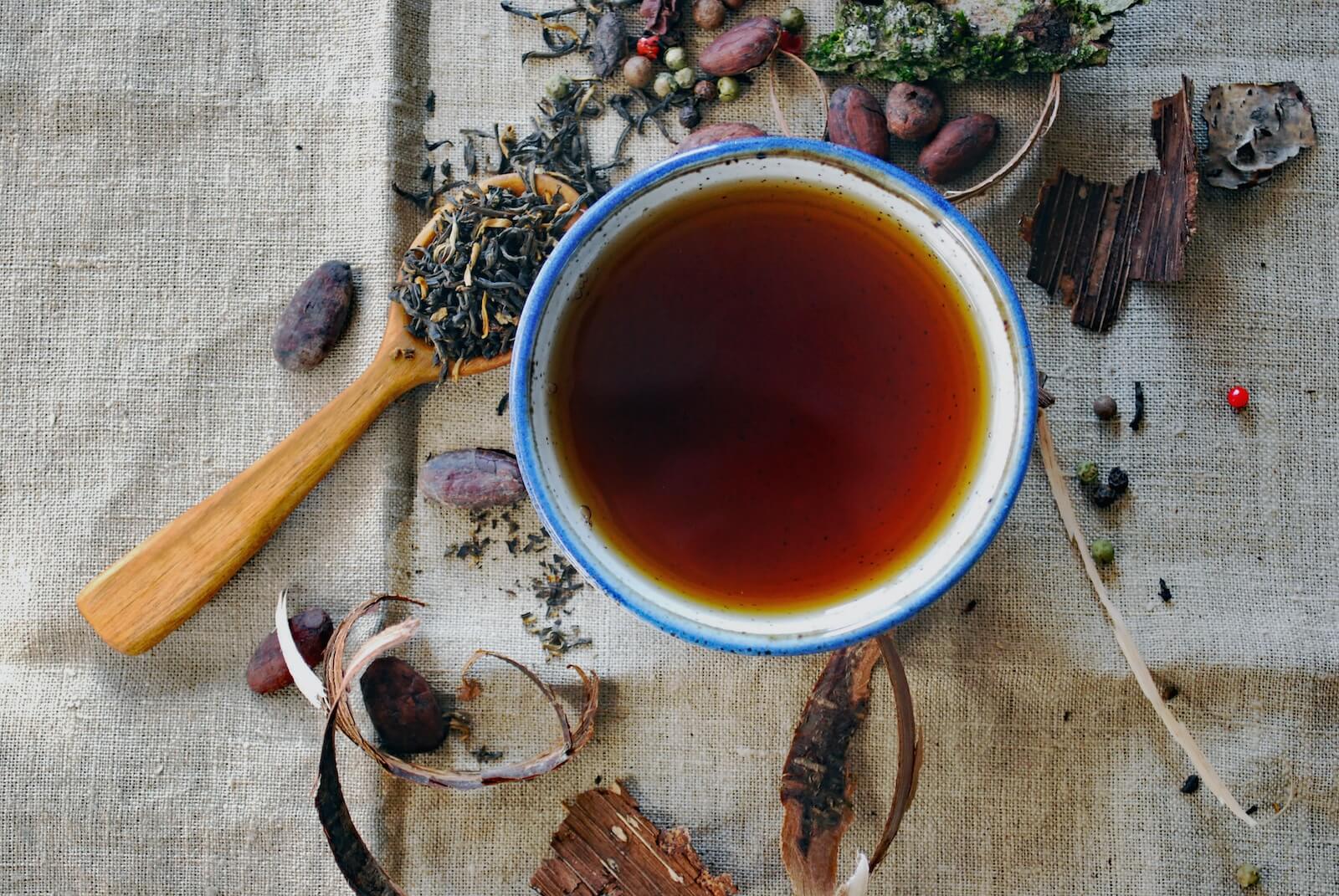
The List: Best Teas for Stress, According to Experts
1. Chamomile
The first spot on our list goes to the trusty chamomile tea. An herbal infusion made from the flowers of the chamomile plant, “Chamomile gets its anxiety-reducing properties from a plant compound (also known as a flavonoid) called apigenin. This naturally-occurring compound is found in some teas, as well as celery, onions, oranges, and herbs like thyme and basil. Apigenin acts on the same receptors in the brain that are targeted by certain anti-anxiety medicines called benzodiazepines,” says Cerebral.
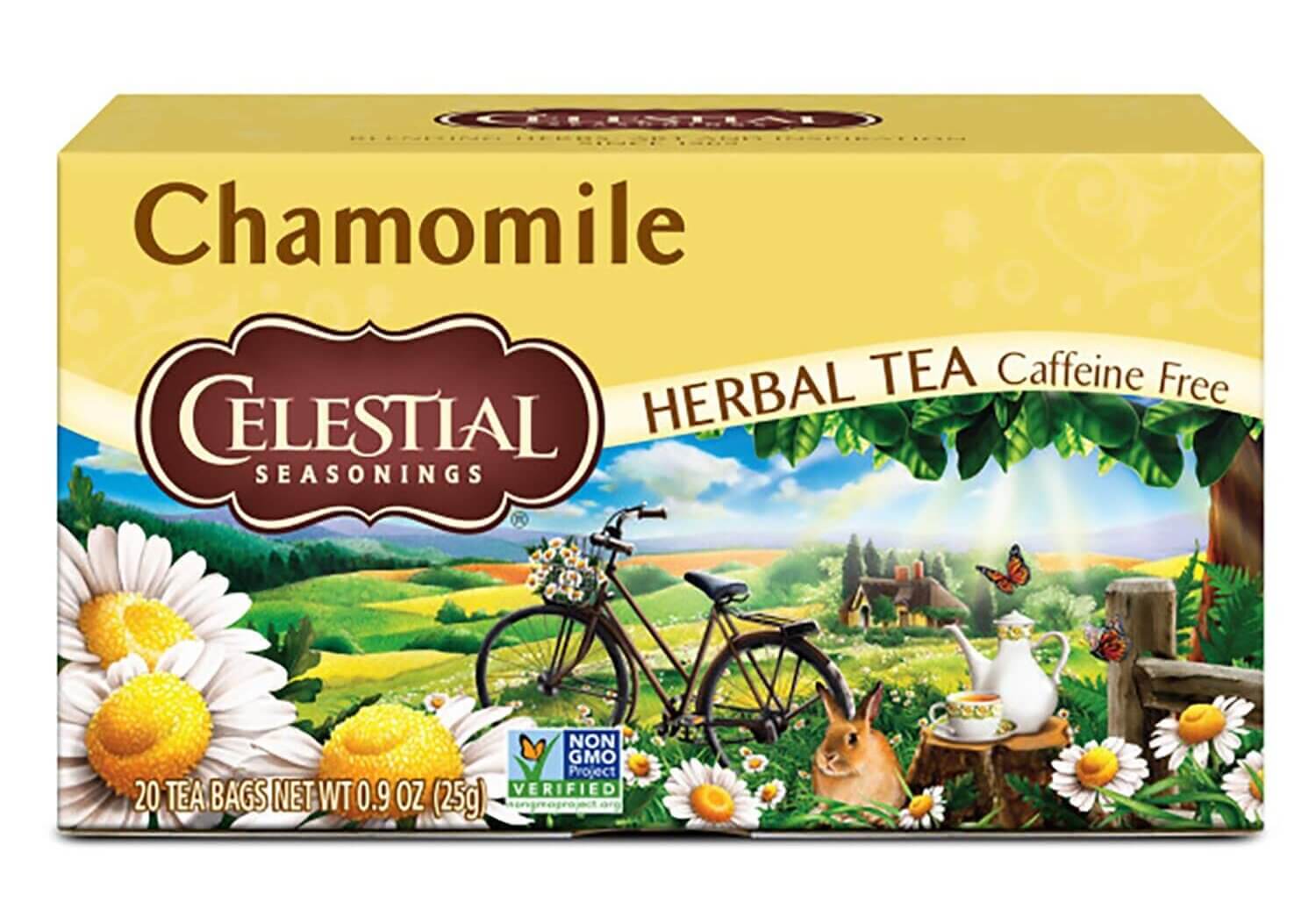
“This daisy-like flower is synonymous with calm, making it among the most well-known stress-soothing teas. One 2016 study found that long-term use of chamomile extract significantly reduced moderate to severe symptoms of generalized anxiety disorder. However, it didn’t prevent future symptoms from occurring,” notes Healthline.
“With a smooth flavor that makes it easy to sip on, chamomile tea is one of the most popular tea flavors. Because it’s an herbal tea, the caffeine-free blend won’t spike your anxiety levels and can be sipped on at any time of day. Chamomile tea is made from dried chamomile flowers and comes in two varieties: German chamomile and Roman chamomile. The tea helps to naturally increase serotonin and melatonin levels in your body, leaving you feeling relaxed without feeling drowsy. Plus, it can help relieve tension by relaxing muscle aches and soothing headaches often associated with stress and anxiety,” writes Sips By.
2. Lavender
Second up is lavender tea. Made using the dried flowers of the lavender plant, “many aromatherapy mists, sprays, and candles use it to promote a good night’s sleep, but lavender can also be used in a calming tea blend to combat stress and anxiety. In fact, lavender essential oil has long been used to help treat depression and anxiety in Ayurvedic medicine and other holistic regimens,” comments Sencha Tea Bar.
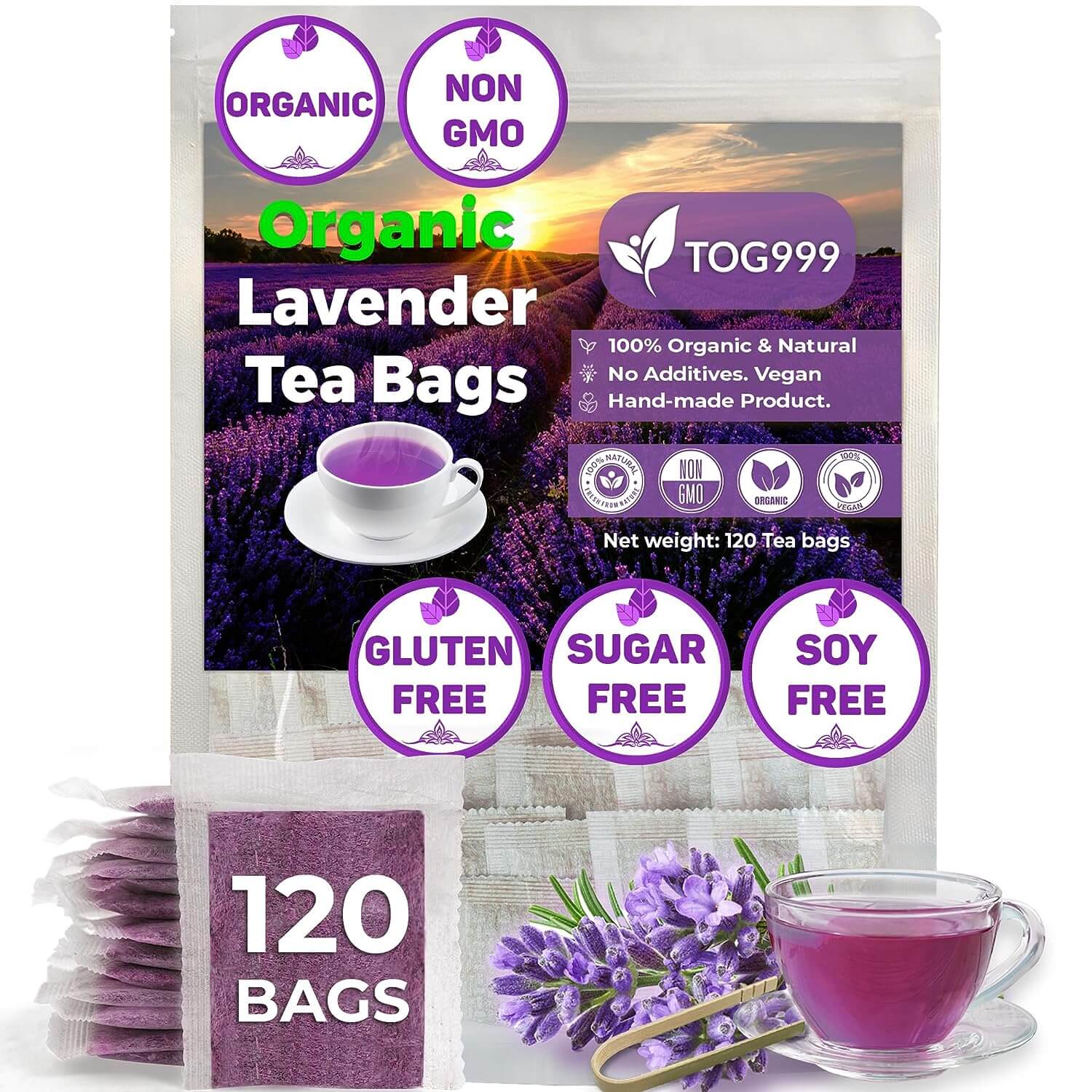
“Like chamomile, lavender is a natural sedative, helping to slow our racing thoughts and relax our bodies. As well as giving us a more restful night’s sleep, lavender’s calming effects can also help to reduce anxiety while we’re awake, giving us some much-needed calm,” adds NutraTea.
“Lavender is widely known for its mood-stabilizing and sedative effects. But did you know that it might be as effective as some medications at relieving anxiety? Researchers in one 2010 study found that silexan, an oral lavender capsule preparation, was as effective as lorazepam in adults with GAD,” describes Healthline.
3. Mint
Next up is mint, or the ever-popular strain of peppermint. Mint tea is a herbal infusion made by steeping fresh or dried mint leaves in hot water. “Mint teas are full of relaxing effects, helping to soothe the body and calm the mind. Looking for a mint tea without caffeine? Peppermint makes a calm, soothing herbal tea, perfect for unwinding in the evening,” says Artful Tea.
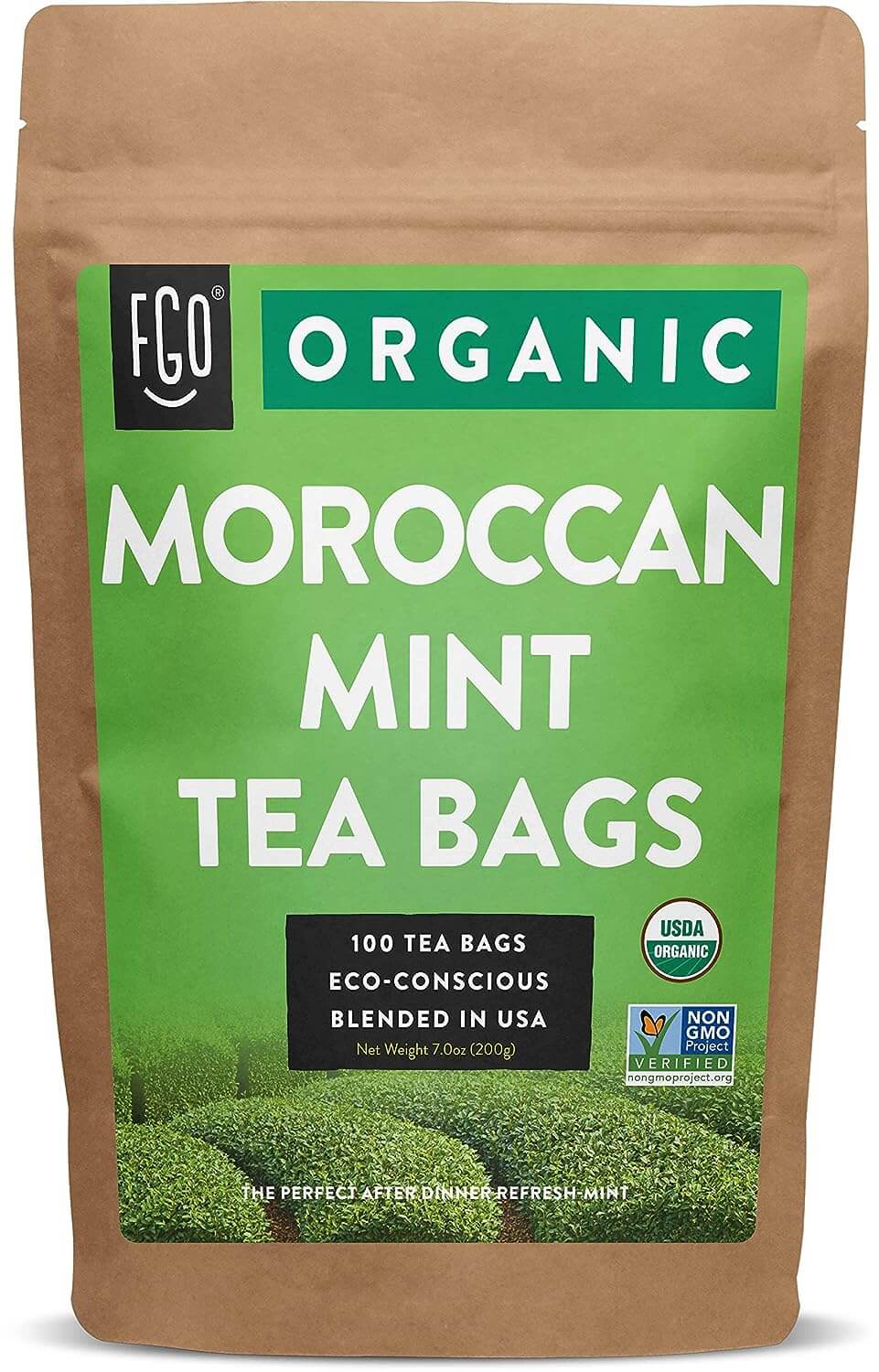
“The cooling properties of mint leaves have made it a staple drink and spice in many cultures. Mint tea has also been used as a remedy for colds, headaches, and stomachaches. Today, the most common types of mint teas are made from peppermint, spearmint, or a mixture of both. These are usually paired with other ingredients in powdered teas or loose leaf infusions,” explains Mosi.
“Peppermint tea is a refreshing sip that’s delicious both hot and cold. It acts as a natural antispasmodic and sedative to help relax both your mind and body. Plus, peppermint has shown to be great for your digestive system, which can be helpful if your stress or anxiety levels tend to bring on tummy troubles. Because it helps to relax muscles, peppermint tea can also help to soothe tension headaches brought on by stress and anxiety, even just by inhaling the scent of a warm mug of peppermint tea,” reports Sips By.
4. Lemon Balm
The second to last spot is lemon balm tea. It is specifically helpful to drink if one is looking for an especially stress-free night’s sleep. “Lemon balm has been used since the 16th century for its mild sedative effect and pleasant lemony aroma. Even its name is calming. The word ‘balm‘ means soothing or restorative. Lemon balm is in the mint family and is widely used throughout Mediterranean, European, and Far East countries. Lemon balm tea is often made on its own from the plant’s leaves or mixed in with other calming herbs like passionflower and chamomile,” describes Psych Central.
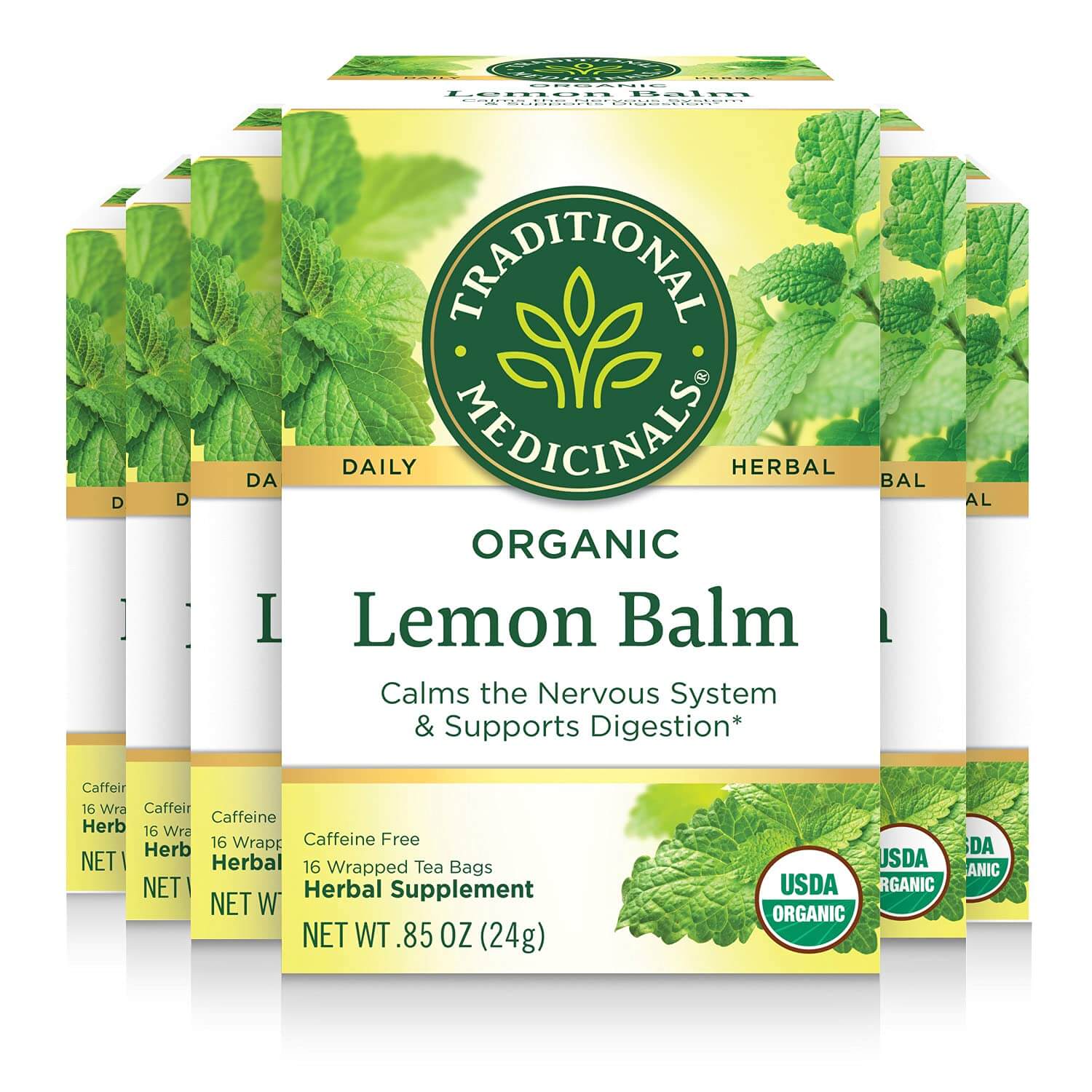
“Lemon balm tea works to reduce the stress hormone cortisol and doesn’t cause drowsiness. It can also boost alertness and concentration. Of all herbal varieties, it’s a great choice if you need to reset (without caffeine) halfway through the day,” notes Camille Styles.
“A study published in Neurochemical Research found that lemon balm tea increased GABA levels and decreased corticosterone levels, including those of cortisol. GABA is a neurotransmitter that induces relaxation, while cortisol is known as the human stress hormone. This research shows that drinking lemon balm tea may help treat symptoms of anxiety on a chemical level in the brain,” comments Sencha Tea Bar.
5. Rose
Last but certainly not least goes to the rose. Rose tea is a fragrant and soothing beverage made from the petals of roses. It is commonly brewed by steeping dried rose petals in hot water, creating a delicate floral infusion that offers a multitude of health benefits. “Used for centuries in everything from rose water to essential oils, rose petals have been shown to have a potent relaxing effect,” explains Artful Tea.
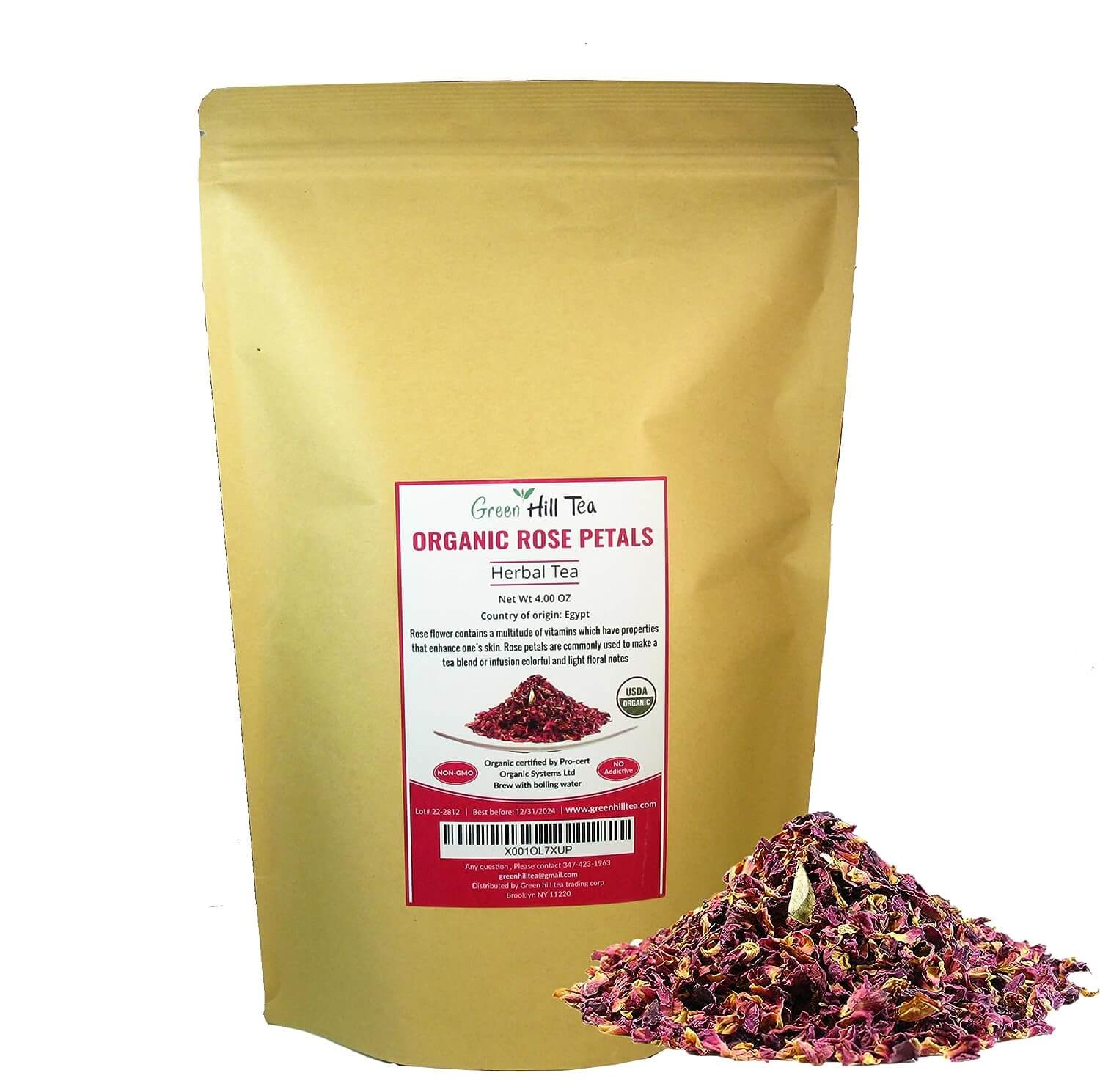
“Rose petals can be added to many different kinds of tea and impart a floral, slightly sweet flavor to whatever tea they mix with. Rose helps to reduce stress and anxiety and promotes calm and relaxation. While roses that are grown specifically for consumption often have a more concentrated flavor and beneficial properties, even traditional garden roses may have similar effects when dried and infused in water,” writes Camille Styles.
“Delicate rose petals can make for a refreshing, relaxing tea. While more research is needed, a 2017 review of rose oil found that its signature smell does seem to promote physiological and psychological relaxation. So if you do brew this tea, be sure to inhale its fragrant smoke as you go,” concludes MBG Health.
You might be interested in:
- Best Green Tea
- Best Black Tea
- Best Tea For Sore Throats
- Best Matcha Tea Powders
- Best Electric Kettles
Sources:
- Artful Tea
- Sips By
- Cerebral
- Mosi
- Healthline
- NutraTea
- Sencha Tea Bar
- Camille Styles
- MBG Health
- Psych Central
Note: This article was not paid for nor sponsored. StudyFinds is not connected to nor partnered with any of the brands mentioned and receives no compensation for its recommendations.
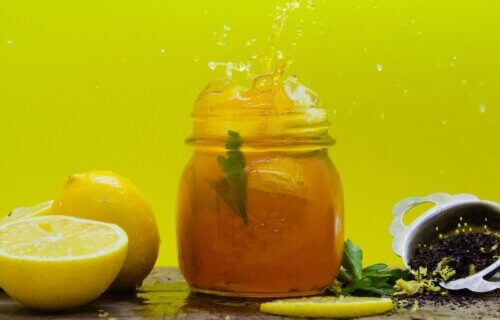



I see this as a very helpful article.
Chamomile tea is the basis of Sleepy Time tea, and from personal experience works well before bedtime to get a sound sleep.